French Bulldog Breed Information


The French Bulldog, lovingly nicknamed the "Frenchie," is an adorable, small-sized dog breed with a muscular and compact body. Their unique bat-like ears, cute wrinkled face, and expressive eyes are only a few of the reasons they've quickly become a favorite among dog lovers worldwide. Known for their sociable, affectionate, and even-tempered nature, Frenchies make fantastic companions for families, singles, and seniors alike.
Hailing from France in the 19th century, the French Bulldog was developed as a miniaturized version of the English Bulldog. Their small stature combined with a sturdy build makes them ideal for apartment living or homes with limited space. Frenchies possess a low to moderate energy level, which means a few brief walks and playtime sessions each day should keep them content and fit.
One characteristic that truly sets the French Bulldog apart is their unwavering loyalty and devotion to their human family. These charming dogs form strong bonds with their owners, earning them the label "velcro dogs" because they just can't get enough of being near their favorite people. Frenchies also exhibit a good deal of intelligence, which makes them fairly easy to train using positive reinforcement techniques. Keep in mind, though, that their stubborn streak may occasionally surface, so patience and consistency are key when training your Frenchie.
Characteristics
- Affectionate and friendly: French Bulldogs are known for their warm and loving nature, quickly becoming attached to their human family members. They're always eager to cuddle up or give a loving nuzzle, making them the perfect companion for people of all ages.
- Adaptable to various living situations: Frenchies can thrive in different environments, whether it's a small apartment or a spacious house. Their compact size and moderate energy levels make them well-suited to a variety of living situations, as long as they get enough love and attention.
- Low to moderate energy level: The French Bulldog doesn't require extensive exercise to stay happy and healthy. A few short walks and play sessions each day are usually enough to keep them content and in good shape.
- Highly intelligent: Frenchies are known for their intelligence, which makes them relatively easy to train. Using positive reinforcement techniques, owners can teach their French Bulldogs a wide range of commands and tricks, although it's essential to be patient and consistent due to their occasional stubbornness.
- Strong attachment to owners: French Bulldogs form deep bonds with their human family members and love to be by their side as much as possible. Their loyalty and devotion make them perfect companions for those seeking a close, loving relationship with their pet.
- Unique appearance: With their distinct bat-like ears, wrinkled faces, and expressive eyes, Frenchies have a one-of-a-kind look that's impossible not to adore. Their compact, muscular build adds to their charming appearance and appeals to dog lovers everywhere.
- Good with children and other pets: French Bulldogs generally get along well with children and other animals, making them an excellent addition to families with kids or other pets. They're known for their patient and gentle nature, which makes them great playmates and companions.
- Low-maintenance grooming: The French Bulldog's short, smooth coat requires minimal grooming. Occasional brushing, nail trimming, and attention to their facial wrinkles are all that's needed to keep them looking and feeling their best.

Appearance
The French Bulldog's appearance is a delightful mix of unique features and charming characteristics that set this breed apart from others. Their distinct look, combined with their compact size and muscular build, has endeared them to dog lovers around the world.
One of the most recognizable features of the French Bulldog is their bat-like ears. These ears are broad at the base and rounded at the top, standing erect to give them a curious and alert expression. The breed's expressive eyes are also a prominent feature, typically round, dark, and set wide apart, conveying a friendly and intelligent gaze.
The Frenchie's head is large and square-shaped, with a slightly rounded forehead and distinctive wrinkles. Their short, pushed-in muzzle gives them an endearing, almost pouty appearance. It's important to note that the breed's facial wrinkles should be kept clean and dry to prevent irritation or infection.
French Bulldogs have a short, smooth coat that lies close to the body, showcasing their compact, muscular physique. The coat can come in various colors and patterns, including brindle, fawn, white, cream, and pied, with or without markings. While the breed is not hypoallergenic, their low-shedding coat requires minimal grooming, making them relatively low-maintenance in that aspect.
The breed's body is sturdy and well-proportioned, with a broad chest, thick neck, and straight, strong legs. Their compact size typically ranges from 16 to 28 pounds, with males being slightly larger than females. The French Bulldog's tail is naturally short, thick at the base, and tapering to a fine point, often carried low or slightly curled over the back.
Temperament
The French Bulldog's temperament is one of its most endearing qualities, making this breed a popular choice for dog lovers everywhere. Known for their affectionate, friendly, and easygoing nature, Frenchies quickly win the hearts of those who encounter them. Their cheerful and loving disposition makes them wonderful companions for families, singles, and seniors alike.
French Bulldogs are incredibly social creatures, enjoying time spent with their human family members and even getting along well with other animals. They're known for their ability to form deep bonds with their owners, craving attention and affection to feel truly content. Frenchies are often described as "velcro dogs" because they just can't get enough of being close to their favorite people.
Despite their small size, French Bulldogs have a surprising amount of courage and can be quite protective of their loved ones. While they're not aggressive by nature, they will stand up for themselves and their family if they feel threatened. Their alertness and keen senses also make them excellent watchdogs, as they're always aware of their surroundings and will notify their owners of any suspicious activity.
While Frenchies are intelligent and eager to please, they can sometimes display a stubborn streak, which can make training a bit of a challenge. It's essential to approach training with patience, consistency, and positive reinforcement to help your Frenchie learn new commands and behaviors.
One thing to keep in mind is that French Bulldogs can be sensitive to their owner's emotions and may become anxious or stressed if they sense tension or upset in their environment. Maintaining a calm, positive atmosphere is crucial for your Frenchie's emotional well-being.
Care
Grooming
The French Bulldog's grooming needs are relatively low-maintenance, making them an attractive choice for those who want a clean and well-groomed pet without investing a significant amount of time and effort. However, it's essential to ensure they receive proper care to keep them looking and feeling their best.
One of the primary grooming needs of the French Bulldog is their short, smooth coat. The breed's coat sheds minimally, requiring only occasional brushing to remove loose hair and keep it looking sleek and shiny. Using a soft-bristle brush or grooming mitt once or twice a week should suffice to maintain the coat's condition and promote healthy skin.
Another important aspect of the Frenchie's grooming routine is attending to their distinctive facial wrinkles. These wrinkles can trap dirt, moisture, and debris, potentially leading to irritation or infection if not kept clean and dry. Regularly wiping their wrinkles with a soft, damp cloth and thoroughly drying them afterward will help prevent any issues. Be sure to check their ears for any signs of debris or infection as well and clean them gently using a cotton ball or soft cloth.
Nail trimming is also an essential part of the French Bulldog's grooming routine. Regularly trimming their nails every few weeks will prevent them from becoming overly long and causing discomfort or potential injury. If you're unsure about trimming your Frenchie's nails yourself, a professional groomer or veterinarian can assist.
Dental care should not be overlooked, as maintaining good oral hygiene is crucial for your French Bulldog's overall health. Regular tooth brushing with a dog-safe toothpaste and toothbrush can help prevent plaque buildup, gum disease, and bad breath. Additionally, providing dental chews or toys can help support their dental health.
Exercise Needs
The French Bulldog's exercise needs are relatively modest compared to many other dog breeds, making them an appealing choice for those with a more relaxed lifestyle. Despite their small size and sturdy build, Frenchies do require regular physical activity to maintain their health and happiness.
A low to moderate energy level characterizes this breed, which means that a few short walks each day, coupled with some playtime, should be sufficient to keep them content and in good shape. Engaging in activities such as leisurely strolls around the neighborhood, playing fetch with a soft toy, or participating in indoor games can provide your Frenchie with the exercise they need while also fostering a strong bond between you and your pet.
It's important to be mindful of the French Bulldog's brachycephalic (short-nosed) nature, which can make them more susceptible to respiratory issues and overheating. Avoid strenuous activities or exercising during the hottest parts of the day, and always ensure your Frenchie has access to fresh water and a cool, shaded area to rest.
Another factor to consider when planning your French Bulldog's exercise routine is their predisposition to joint issues, such as hip dysplasia. Keeping their exercise moderate and avoiding high-impact activities can help prevent unnecessary stress on their joints and promote their long-term health.
Mental stimulation is equally important for the French Bulldog's well-being. They are intelligent dogs that enjoy engaging their minds with puzzle toys, treat-dispensing toys, or learning new tricks and commands. Providing mental challenges for your Frenchie can help keep them happy and prevent boredom-related behaviors.
Health
The French Bulldog is generally a healthy breed, but like all dogs, they can be prone to certain health issues. Being aware of these potential concerns and providing regular veterinary care can help ensure your Frenchie enjoys a long and happy life.
- Allergies: French Bulldogs can suffer from allergies, which may cause itching, redness, or skin irritations. Identifying and avoiding allergens, along with providing proper grooming and skin care, can help manage allergy symptoms.
- Eye Conditions: Frenchies may be prone to eye issues such as cherry eye, cataracts, or entropion. Regular eye examinations and prompt veterinary care if you notice any changes in your dog's eyes can help maintain their vision and overall eye health.
- Obesity: French Bulldogs can be prone to weight gain if they don't receive proper exercise and a balanced diet. Keeping your Frenchie at a healthy weight can help prevent a myriad of health issues, including diabetes, heart problems, and joint issues.
Regular veterinary check-ups, a balanced diet, proper exercise, and maintaining a healthy weight are crucial to your French Bulldog's overall health. By being aware of these potential health concerns and providing appropriate care, you can help ensure your Frenchie enjoys a long, happy, and healthy life as your cherished companion.
Lifespan
The French Bulldog, when provided with proper care and attention, typically enjoys a lifespan of around 10 to 14 years. This range may vary depending on factors such as genetics, overall health, and the individual dog's living environment.
In some exceptional cases, French Bulldogs have been known to live even longer, reaching up to 15 or 16 years of age. These instances, though rare, are a testament to the breed's adaptability and resilience when given the right care and attention.
To maximize your Frenchie's lifespan and ensure they enjoy a healthy and fulfilling life, it's essential to provide them with regular veterinary care, a balanced diet, appropriate exercise, and a loving, safe home environment.
By addressing any potential health concerns early and maintaining a proactive approach to their well-being, you can help your French Bulldog live a long, happy life as your cherished companion.
Training
Training a French Bulldog can be a rewarding and enjoyable experience, as they are intelligent, eager to please, and highly adaptable. However, it's important to approach training with patience, consistency, and a positive attitude, as this breed can sometimes display a stubborn streak that may present challenges.
Positive Reinforcement: Frenchies respond best to training methods that use positive reinforcement, such as praise, treats, and play. This approach helps to build trust and strengthen the bond between you and your dog, making training an enjoyable experience for both of you.
Early Socialization: Exposing your Frenchie to a variety of people, animals, and environments from an early age can help them develop into well-rounded, confident dogs. Puppy socialization classes or regular visits to dog-friendly parks and stores can provide valuable opportunities for your dog to learn appropriate behaviors and manners.
Consistency: Consistency is key when training a French Bulldog. Establishing a routine and sticking to it will help your Frenchie understand what is expected of them. Make sure everyone in the household follows the same rules and commands to avoid confusion.
Patience: Remember that training takes time, and progress may be slow at times. Be patient and keep your expectations realistic. Celebrate small successes along the way, and remember that setbacks are a natural part of the learning process.
Keep Training Sessions Short: French Bulldogs have relatively short attention spans, so it's best to keep training sessions brief and engaging, typically around 10 to 15 minutes each. Multiple short sessions throughout the day can be more effective than a single, longer session.
Basic Obedience: Start with basic obedience commands such as sit, stay, come, and down. Once your Frenchie has mastered these, you can gradually introduce more advanced commands or tricks.
Mental Stimulation: Training is not just about teaching commands, but also about providing mental stimulation for your French Bulldog. Interactive toys, puzzle feeders, and teaching new tricks can help keep their minds sharp and prevent boredom-related behaviors.
History
The history of the French Bulldog can be traced back to the early 19th century when English lace makers in Nottingham began breeding a smaller, toy-sized version of the English Bulldog as a lap companion. As the Industrial Revolution took hold, many of these lace makers sought better opportunities in France, taking their miniature Bulldogs with them.
Once in France, the tiny Bulldogs quickly gained popularity among the French working class, who admired their compact size, unique appearance, and charming personalities. French breeders began to selectively breed these little dogs, focusing on their distinctive features such as bat-like ears, shorter legs, and compact bodies. They also crossed the mini Bulldogs with other breeds like the Pug and the Terrier to enhance certain traits, ultimately developing the breed we know today as the French Bulldog.
By the late 19th century, the French Bulldog's popularity had spread beyond France, captivating the hearts of dog enthusiasts in England and the United States. They quickly became a favorite among high society, often seen accompanying their affluent owners to social events and gatherings.
The French Bulldog made its first appearance at a dog show in 1896, and the breed was officially recognized by the American Kennel Club (AKC) in 1898. Over the years, the breed's popularity continued to grow, and today the French Bulldog consistently ranks among the most popular dog breeds worldwide.

